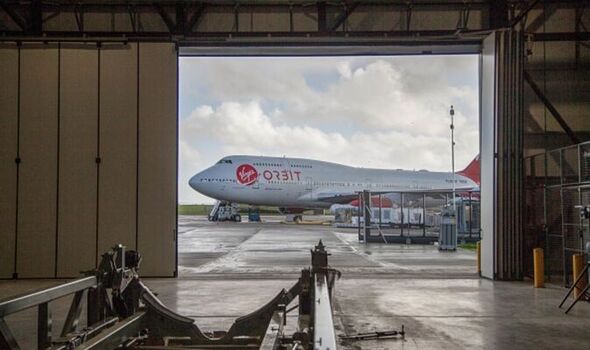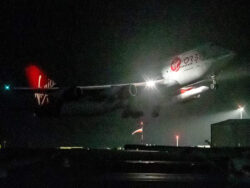Reason for UK rocket launch failure revealed
The reason for the failure of the UK’s first-ever satellite mission last month has been revealed – the rocket fuel filter had become dislodged, Virgin Orbit says.
A rocket engine overheated in turn, leading to the loss of the rocket and satellites it was carrying.
Virgin Orbit, founded by British billionaire Sir Richard Branson, sent up a jumbo jet carrying the rocket from Cornwall on 9 January. The aircraft returned safely to the ground.

CEO Dan Hart said the company would “proceed cautiously towards the launch” of its next rocket.
“The data is indicating that, from the beginning of the second stage first burn, a fuel filter within the fuel feedline had been dislodged from its normal position,” Virgin Orbit tweeted.
“Additional data shows that the fuel pump that is downstream of the filter operated at a degraded efficiency level, resulting in the Newton 4 engine being starved for fuel.
Performing in this anomalous manner resulted in the engine operating at a significantly higher than-rated engine temperature.
“The early thrust termination ended the mission, and the second stage and its payloads fell back to Earth, landing in the approved safety corridor in the Atlantic Ocean.”
UK space to become global player
The mission was set to be a landmark moment for UK space, marking the birth of a home-grown launch industry.
The plan is to turn the UK into a global player – from manufacturing satellites to building rockets and creating new spaceports.
Virgin Orbit is headquartered in California.





